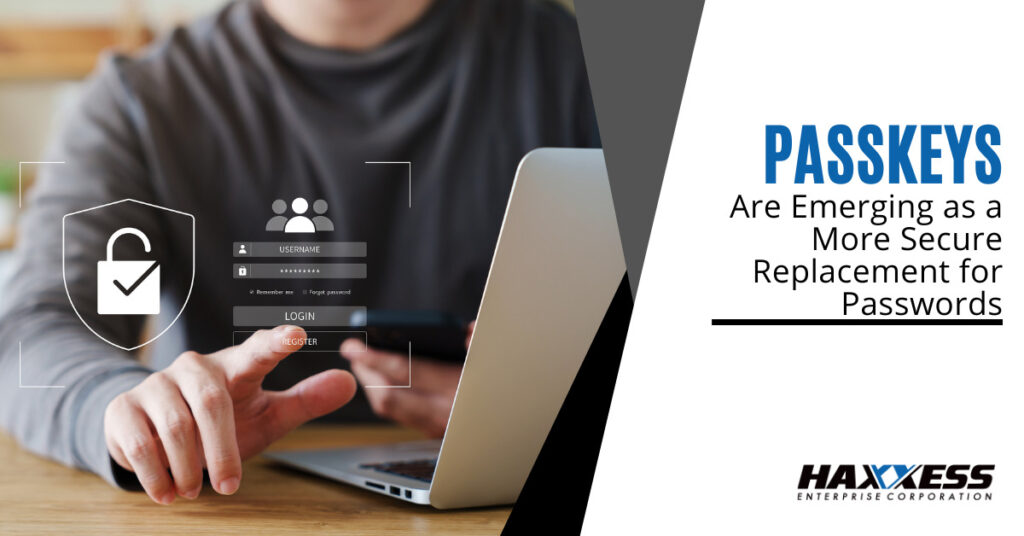
As the digital world expands, the security of sensitive information and data becomes more important than ever. Passwords have long been the primary method of securing access to digital accounts, but they have proven to be vulnerable to hacking, phishing, and other attacks.
In recent years, passkeys have emerged as a potential replacement for passwords, providing a more secure and convenient way to access digital accounts. In this article, we will explore the benefits of passkeys, how they work, and their potential as a secure alternative to passwords.
A passkey is a unique identifier that replaces traditional passwords. It is typically a long string of characters, generated by a user’s device, that is used to authenticate the user’s identity when accessing digital accounts. Passkeys are unique to each device and are encrypted, making them much more secure than traditional passwords.
Passkeys work by using a combination of public and private keys to authenticate a user’s identity. When a user attempts to access a digital account, their device generates a unique passkey that is then sent to the account’s server.
The server then uses the public key to authenticate the passkey, ensuring that the user is who they say they are. Because passkeys are generated by the user’s device, they cannot be intercepted or stolen by hackers or other malicious actors.
There are many benefits to using passkeys as a replacement for traditional passwords, including:
Passkeys are much more secure than traditional passwords because they are unique to each device and are encrypted. This means that even if a hacker manages to intercept a passkey, they will not be able to use it to access the user’s account.
Passkeys are much more convenient than traditional passwords because they are generated automatically by the user’s device. This means that users do not have to remember complicated passwords or worry about forgetting them.
Passkeys are compatible with a wide range of devices and platforms, making them a versatile and convenient option for securing digital accounts.
Because passkeys are unique to each device and are generated automatically, there is no need for users to reset their passwords periodically. This eliminates the inconvenience and frustration of having to remember and update multiple passwords.
Passkeys are generated automatically by the user’s device, which means that they cannot be phished or tricked out of their passkey.
While passkeys offer many benefits over traditional passwords, they are not without their limitations. Here are some of the key differences between passkeys and passwords:
Passkeys are generally easier to use than passwords because they are generated automatically by the user’s device. With passkey security, there is no need to remember multiple passwords across different accounts.
Passkeys are much more secure than traditional passwords because they are unique to each device and are encrypted. This means that even if a hacker manages to intercept a passkey, they will not be able to use it to access the user’s account.
Passkeys are compatible with a wide range of devices and platforms, making them a versatile and convenient option for securing digital accounts.
Passkeys are more complex than traditional passwords, which can make them more difficult for some users to understand and use.
Passkeys can be more expensive than traditional passwords because they require additional hardware or software to generate and authenticate.
As technology advances, passkeys are likely to become an increasingly popular method of securing access to digital accounts. While there are some limitations to their use, passkeys offer a more secure and convenient alternative to traditional passwords and have the potential to revolutionize the way we secure our digital identities. Passkeys are already being used in a variety of industries, including finance, healthcare, and government.
One potential drawback of passkeys is the cost associated with implementing the necessary hardware and software. However, the cost of these systems is likely to decrease in the future, making passkeys more accessible to a wider range of users.
Another potential issue is the risk of losing a passkey. Because passkeys are unique to each device and cannot be reset, losing a passkey can be a significant problem. But many passkey systems include backup mechanisms to ensure that users can regain access to their accounts in the event of a lost or stolen passkey.
Passwords have long been the primary method of securing access to digital accounts, but they have proven to be vulnerable to hacking, phishing, and other attacks. Passkeys are emerging as a more secure and convenient replacement for passwords, providing a unique identifier that is generated automatically by the user’s device.
If you are interested in learning more about passkeys and how they can benefit your business, contact Haxxess today to speak with us about our expert services.